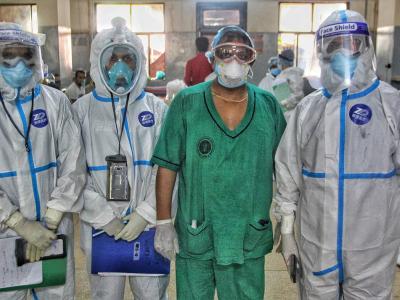
Professor Ridwanul Hoque, the 2020-21 IASH-Alwaleed Research Fellow, has written a blog for Verfassungsblog (a constitutional law blog from Germany) on the impact of the COVID-19 pandemic on Bangladesh. You can read the full blog at https://verfassungsblog.de/bangladeshs-covid-19-year-in-review/.
No doubt, in addition to ailing ‘Bangladesh’s health, politics and economy’, COVID-19 has taken a toll on people’s civic rights and liberties. The pandemic has affected the lives of people in many ways: many people have lost their jobs, incurred loan debt, and have been deprived of treatment facilities and subjected to domestic violence and other heinous crimes such as rape and human trafficking as a direct result of the situation caused by the pandemic. An unexpected social consequence, for example, has been the alarming rise in divorce rates in Dhaka and other cities during the pandemic.
COVID-19 has been used as a cover up in hiding the ongoing trend of human rights violations for the past several years. On the one hand, people lost their freedom of movement during lockdown, and the right to education of school children and university students continue to be hampered. On the other hand, when the national attention remained focused on the COVID pandemic, loss of freedom of speech, harassments of journalists, extrajudicial killings, and enforced disappearances went on unabated. Several hundreds of returning Bangladeshi migrant workers were arrested at the airport. Reportedly, at least a dozen journalists/individuals in Bangladesh are facing prison terms for critiquing the government or its responses to the pandemic or for ‘spreading’ pandemic-related rumours. Some dissenters and human rights defenders have been silenced by using or threatening to use the infamous Digital Security Act 2018 that provides for harsh punishments for maligning the country’s ‘image’ or that of any person, especially any dignitary or a high-up in the government. A writer-entrepreneur, arrested in May for sharing a satirical cartoon on corruption by a cartoonist (also arrested), died in prison on 25 February 2021, while the cartoonist was allegedly brutally tortured.
Like many other countries, Bangladesh has been a case of democratic backsliding. The COVID-19 now constitutes a critical juncture in the trajectories of democratic deconsolidation.
